Search
Remove Ads
Advertisement
Summary 
Loading AI-generated summary based on World History Encyclopedia articles ...
Search Results

Definition
Arrian
Lucius Flavius Arrianus, commonly known as Arrian (86 - c. 160 CE) was a Greek historian, philosopher, and statesman from Nicomedia, capital of the Roman province of Bithynia. Arrian is recognized as one of the most renowned authors of the...

Article
Periplus of the Euxine Sea
The Periplus of the Euxine Sea (Circumnavigation of the Black Sea) is a description of trade routes along the shores of the Black Sea written by Arrian of Nicomedia (Lucius Flavius Arrianus), a historian and philosopher writing in the early...
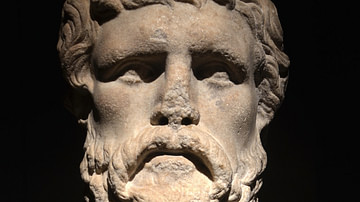
Definition
Xenophon
Xenophon of Athens (l. 430 to c. 354 BCE) was a contemporary of Plato and a fellow student of Socrates. He is best known for his Anabasis (The March Up Country) detailing the retreat of the Ten Thousand Greek mercenaries after the defeat...
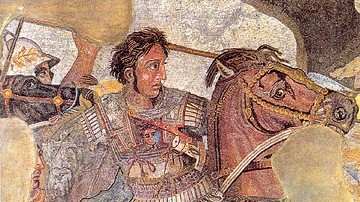
Definition
Alexander the Great
Alexander III of Macedon, better known as Alexander the Great (l. 21 July 356 BCE – 10 or 11 June 323 BCE, r. 336-323 BCE), was the son of King Philip II of Macedon (r. 359-336 BCE) who became king upon his father's death in 336 BCE and then...
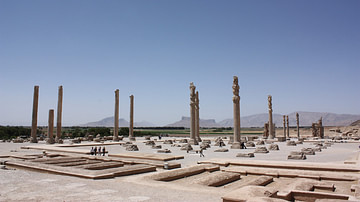
Article
Alexander the Great & the Burning of Persepolis
In the year 330 BCE Alexander the Great (l. 356-323 BCE) conquered the Achaemenid Persian Empire following his victory over the Persian Emperor Darius III (r. 336-330 BCE) at the Battle of Gaugamela in 331 BCE. After Darius III's defeat...

Article
Alexander the Great: A Case Study in Martial Leadership
History is not predictable; in many ways it can take on a life of its own. But sometimes, an individual's sheer presence is enough to bend history to his will. One such individual was Alexander the Great. Through his conviction, vision, mental...

Image
Anabasis of Alexander
Alexandri Anabasis by Arrian (86 - c. 160 CE)
Published in Geneva, 1575 CE.

Article
Death of Alexander the Great
In June of 323 BCE, Alexander the Great (r. 336-323 BCE) died in Babylon. His sudden death before his 33rd birthday has long been a point of speculation: was it disease, old wounds, or murder? Regardless of the cause, history ranks him as...
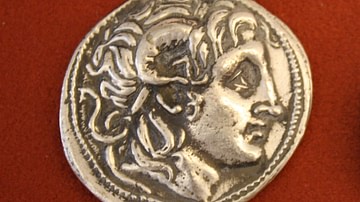
Article
Alexander the Great as a God
The age-old concept of the “divine right of kings” allowed that a country's ruler received his or her power or authority from God. However, few, if any, were delusional enough to actually believe themselves to be a god. An exception to this...
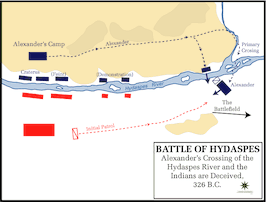
Article
Battle of Hydaspes
For almost a decade, Alexander the Great and his army swept across Western Asia and into Egypt, defeating King Darius III and the Persians at the battles of River Granicus, Issus and Gaugamela. Next, despite the objections of the loyal army...